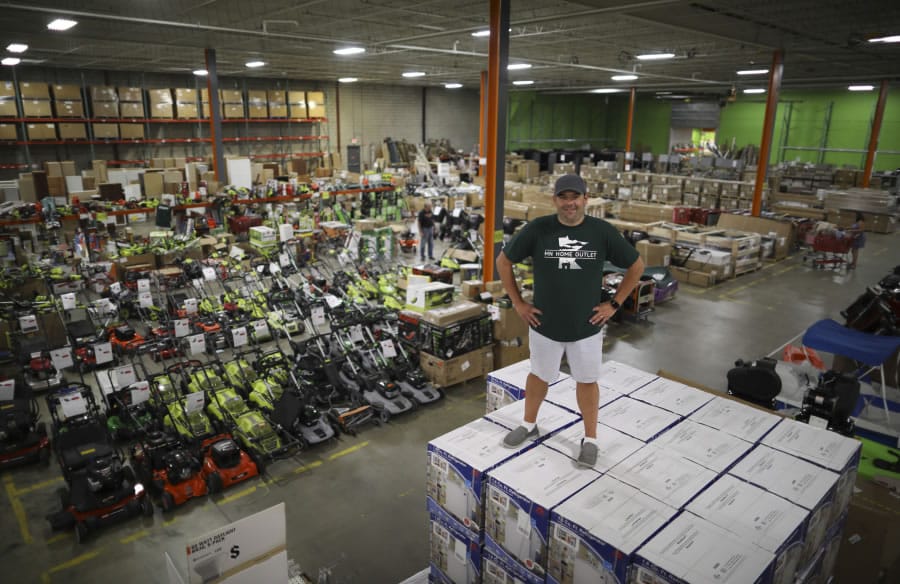MINNEAPOLIS — What happens to home improvement products that shoppers return or ship back to stores or Amazon.com?
Retailers won’t risk that a cordless drill, circular saw or dorm fridge could have been abused or be missing a part. Instead, they sell them to people such as Jimmy Vosika at 15 to 35 cents on the dollar.
Vosika founded the TV parts and accessories site ShopJimmy.com. After friends in the corporate returns division at a national retailer persuaded him to buy some of their returned goods, he opened MN Home Outlet three years ago in Burnsville, Minn. From a start in a 1,500-square-foot space, it’s now the size of a Cub Foods.
“We’re Home Depot without the lumber,” Vosika said. Contractors, remodelers, flippers, DIYers and cheapskates are frequent customers for products that were sold and returned to companies such as Amazon, Home Depot, Target and Wal-Mart.
Vosika is one of the recent successes in the reverse logistics or liquidated returns business. The amount of goods that U.S. consumers are returning has become so large that entrepreneurs are buying them to resell them at a profit.
In its first year of business, MN Home sold $870,000 in merchandise. This year, it’s on track for $11 million in revenue. In some months, sales at the outlet store exceed those at Shopjimmy.com, which has about $20 million in annual sales.
Amazon alone feeds the need by accumulating hundreds of trailer loads of returns each week, said Irwin Jacobs, founder of Jacobs Trading in Hopkins, which specializes in opportunistic buying. He just opened Dock 1 Bargains with a large assortment of furniture, hardware, TVs, patio sets and appliances. An assembled, 19-inch two-burner Member’s Mark gas grill was $140 last month, compared to $200 new and unassembled from Samsclub.com.
Even entrepreneurs with no retail experience are getting in on the action. Any hobbyist intent on making “beer” money can buy a pallet of returns from a website such as Liquidation.com, a local auction house or a reverse logistics company such as Event Sales in Hopkins.
Alan Barringer of Big Lake purchased several pallets of Home Depot items from Auction Masters in Maple Grove. “We’d get Swiffer WetJets and sell them at flea markets and garage sales and make a little money,” he said.
Like any treasure hunt, shopping at a liquidator usually requires time and patience. Similar items are usually grouped together, but shoppers may have to comb through the store like a garage sale.
One of the problems with buying retailers’ returns is condition. Wholesale buyers sometimes know what is in their shipment, but they are clueless about whether electrical or mechanical equipment functions properly. Consumers won’t usually take a chance on an electrical item, even at 50 percent off, without a money-back guarantee. That puts liquidators in a position of deciding whether to test each electronic item.
Vosika gives customers a 14-day return policy on defective electrical or mechanical items. Others give seven days or charge a 20 percent restocking fee.
Nearly 30 percent of purchases made online are returned, according to Worldwide Business Research. That’s triple the return rate for items purchased in stores.



